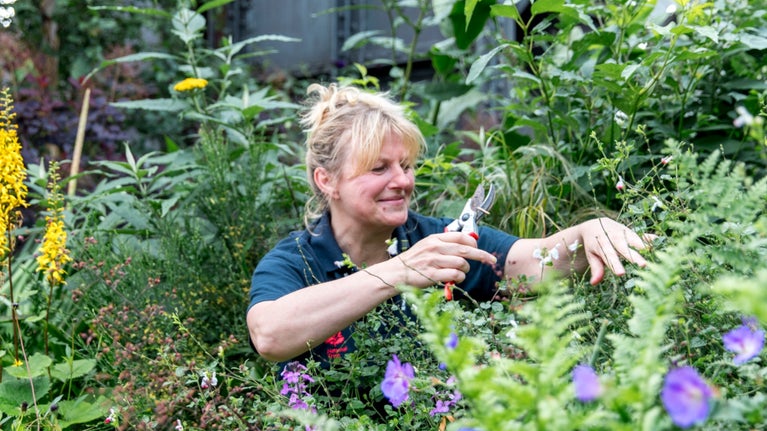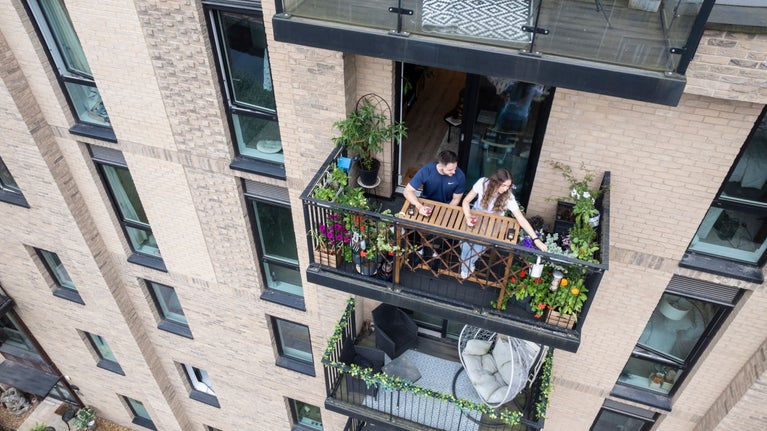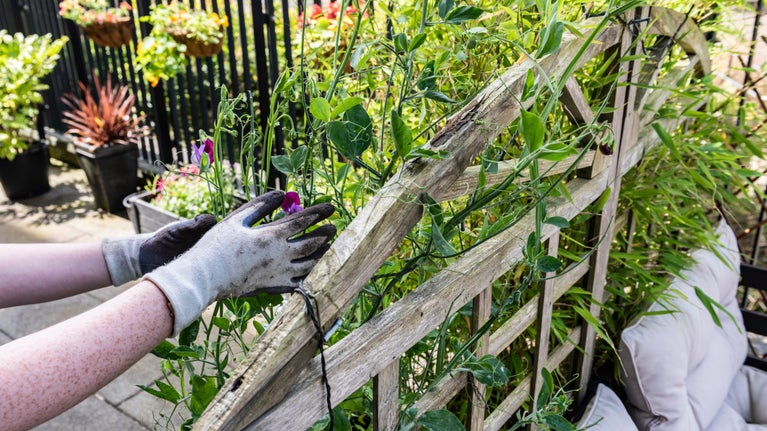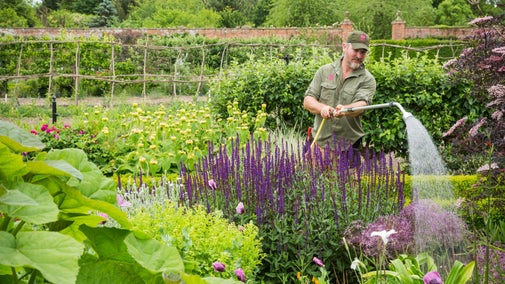
Get gardening
Our gardeners are on hand with ideas for your garden, plot or window box. From planting veg to tackling weeds, they’ve got all the important topics covered.

Even the smallest balconies can be transformed into a green retreat. With the right plants, your balcony can become a vibrant space to relax, attract wildlife and improve wellbeing. Discover tips and inspiration for getting started.
For quick results, choose ready-grown plants and use large pots because they hold more compost and water, making them easier to manage. Check the pots have drainage holes to stop the water from building up at the bottom.
Shrubs and small trees add height and structure to balcony gardens. Remember to use peat-free compost to protect peatlands, which are vital for preserving nature and the climate.
Big, bold leaves can muffle street noise, clean and cool the air and give your balcony a lush, tropical feel. Plants like hardy palms, bamboo and banana plants thrive in sunny spots.
For shaded areas, try glossy evergreens like Fatsia japonica or Mexican orange blossom. Mixing different shapes, sizes and colours will add diversity and make your balcony garden more visually interesting.
If you’re on a budget, growing from seeds is a low-cost way to fill your balcony with life. You can sow seeds, or plant plugs in spring and have a thriving balcony garden by the summer.
Climbing plants like black-eyed Susan, sweet pea and cup and saucer vine are perfect for covering railings or filling vertical spaces. They grow fast and can be trained to climb or trail.

Fragrant plants make balconies feel more inviting and pleasant, especially if you’ll be spending time there. Star jasmine grows well in pots and produces a rich, sweet smell in the summer.
Other plants like stock or tobacco flowers release their scent in the evening to attract moths, which are a food source for bats.
Balconies are a great space to grow your own food. You don’t need much room, just a few pots can give you fresh, home-grown ingredients.
You can grow herbs like thyme, rosemary, sage and chives. You could also plant lemon verbena or mint for making tea. Vegetables like lettuce, rocket and tumbling tomatoes are also easy to grow.
If you’ve got more space, you can grow blueberries and strawberries. Even apple trees can fruit in pots if they’re grown on a dwarf rootstock that keeps the tree small. Also, edible flowers like marigolds or nasturtiums add colour and can be used as garnishes for meals.
Plants with flowers provide bees and other pollinators with nectar and pollen. They play an important role in nature and can help turn your flowers into fruit.
To attract pollinators, grow nectar-rich plants like buddleia and let herbs produce flowers. Avoid double-flowered varieties, which often produce little or no nectar.
Your balcony can offer shelter and food for birds and insects. Adding a bee hotel to a sunny wall can give solitary bees a place to nest.
Native British plants like elder, ivy, dogwood, red campion and sweet woodruff are great food sources for insects and grow well in pots.
Watering your plants is vital, especially if your balcony is covered, very sunny or doesn’t catch much rain.
If possible, collect rainwater by diverting it from the gutter using a water butt, though you may need permission if it involves changing guttering. You can also reuse leftover water from cooking or washing – just make sure it’s cool and clean.
If you’re going away during hot weather, move your plants into the shadiest spot to retain moisture. For very sun-exposed balconies with little access to rainwater, stick to drought-tolerant plants like lavender or hebes. Their small, slivery leaves help them hold onto water.

Our gardeners are on hand with ideas for your garden, plot or window box. From planting veg to tackling weeds, they’ve got all the important topics covered.
Keep your garden or outdoor space looking its best through the warmest and driest season of the year with these summer gardening tips.

Find out how to get more out of your blooms this summer as our gardeners share their tips on how to garden during the warmest season.

We've committed to going peat free as an organisation, and all the plants we grow, buy and sell are potted in peat-free compost. Hear from our team of gardening experts and discover top tips for peat-free gardening in your green space.
